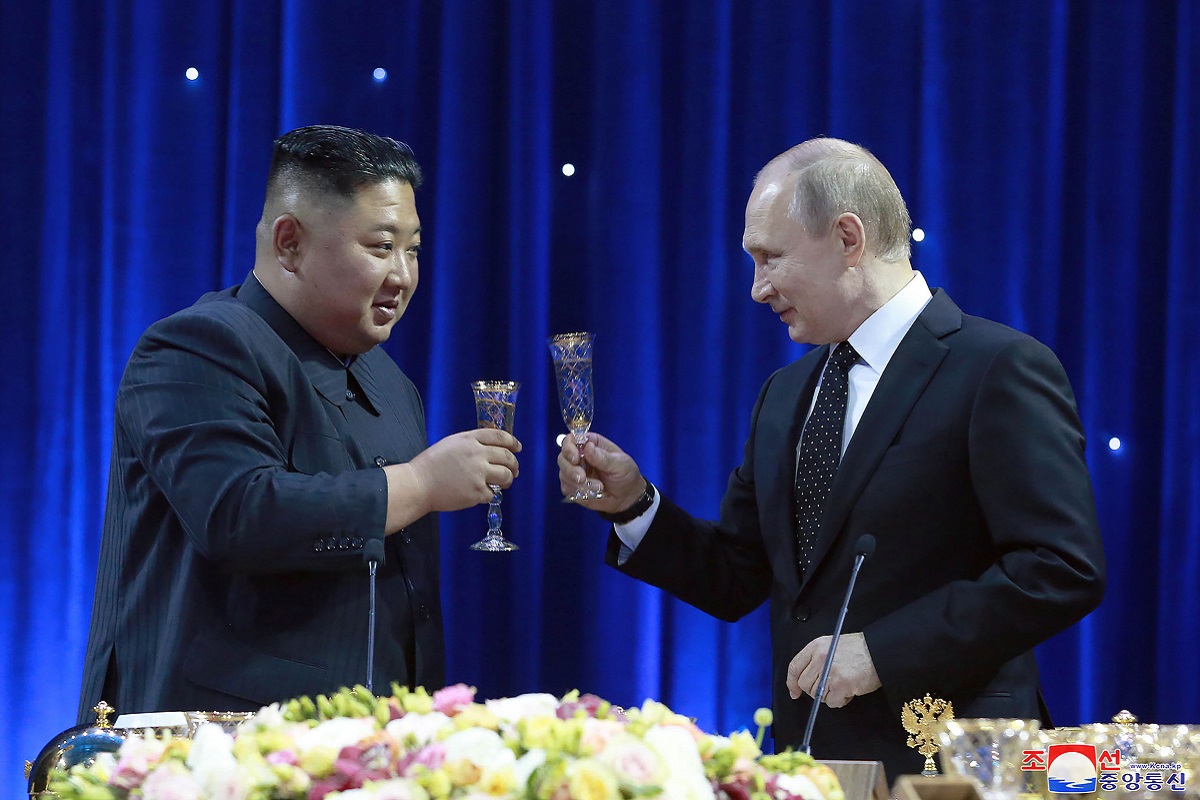Explosions heard across Ukraine amid missile attacks
Explosions were heard in several Ukrainian regions late on Friday amid Russian missile attacks, local media outlets reported.

(KCNA VIA KNS / AFP)
In the ever-evolving landscape of global politics, the prospect of a summit between North Korean leader Kim Jong Un and Russian President Vladimir Putin has emerged as a topic of both intrigue and concern. This potential rendezvous between two leaders who have often found themselves at odds with the United States and the international community carries profound implications for regional and global stability. The significance of such a meeting cannot be overstated. Mr Kim’s last diplomatic engagement with a foreign leader transpired in April 2019.
The focal point of concern centres on reports that Russia is actively seeking to procure ammunition from North Korea to replenish resources depleted by its involvement in the Ukraine conflict. This development raises a series of pivotal questions regarding the extent of military collaboration between these two nations. If North Korea indeed provides ammunition to Russia in exchange for essentials such as food, energy, and advanced weaponry, it could substantially bolster Mr. Kim’s regime, which remains under strict international sanctions. Moreover, the visit of Russian Defense Minister Sergei Shoigu to Pyongyang in July and discussions regarding potential joint military exercises add a layer of complexity to the situation.
While the full scope of their military cooperation remains shrouded in ambiguity, any indication of improved relations between these two nations is bound to stir apprehension among their rivals, especially the USA, South Korea and Japan. For Russia, this engagement with North Korea serves as a strategic move to fortify its position in the ongoing Ukraine conflict. Moscow has been an active supporter of separatist forces in eastern Ukraine and seeks to counter Ukrainian efforts to reclaim control of its territory. The acquisition of ammunition from North Korea could offer Russia the necessary means to sustain its involvement in Ukraine, potentially prolonging the conflict and further straining Russia’s relations with Western powers. Conversely, North Korea’s overtures towards Russia stem from its desire to counter US efforts to bolster military alliances with South Korea and Japan.
Advertisement
North Korea’s recent surge in missile testing is seen as a direct response to perceived threats emanating from these alliances. By cultivating closer ties with Russia, North Korea aims to diversify its strategic partnerships and reduce its dependence on China. In this intricate geopolitical dance, the repercussions for regional stability are palpable. The possibility of a North Korea-Russia alliance, even if limited to specific domains, has the potential to disrupt the equilibrium of power in Northeast Asia, especially when seen against the backdrop of ties between the two nations and China. It could embolden North Korea in its pursuit of nuclear capabilities and reinforce its confidence in challenging US interests in the region. South Korea, a key ally of the USA, is closely monitoring these developments with understandable apprehension. The fragile peace on the Korean Peninsula already faces considerable strain due to North Korea’s missile tests and nuclear ambitions. A burgeoning North KoreaRussia relationship could further complicate endeavours to achieve lasting stability in the region.
Advertisement